Home Remedies For Gall Bladder Stone
By Dr. V Devendran +2 more

Get,

to manage your symptom
Get your,


4 Cr+ families
benefitted

OTP sent to 9988776655



You’ve successfully subscribed to receive
doctor-approved tips on
Whatsapp

Get ready to feel your best.

Hi There,
Download the PharmEasy App now!!


Register to Avail the Offer
Send OTPBy continuing, you agree with our Privacy Policy and Terms and Conditions

Hi There,
Sign up on PharmEasy now!!
Trusted by 4 crore+ families

OTP sent to 9988776655



You have unlocked 25% off on medicines




Code: NU25



By Dr. V Devendran +2 more
Table of Contents
The liver, gallbladder and ducts associated with the two organs comprise the human biliary system. The biliary system functions to produce, secrete and store bile. Bile is made in the liver and is necessary for the digestion of fats in your food. As you eat, the bile moves from the liver to your small intestine. However, when you are not eating, the bile gets stored in the gallbladder, where it also gets concentrated. During your fat intake, the gallbladder contracts to release the bile stored in it and pushes it into the small intestine. Sudden or fast intensifying spasm or pain at the upper right of your abdomen or back, usually after an evening meal, nausea and vomiting signal that all may not be well with your gallbladder. The pains last for a few minutes to a few hours in some cases.
Gallstones or cholelithiasis as it is known in medical terminology, are the most common cause of problems 0f your gallbladder. Gallstones are hard nuggets of cholesterol or bilirubin, i.e. bile salt. They do not have any specific shape or size. They may just be the size of a grain of salt or large enough akin to a golf ball. The number of stones inside your gallbladder may be anything – just a single one or many of them.
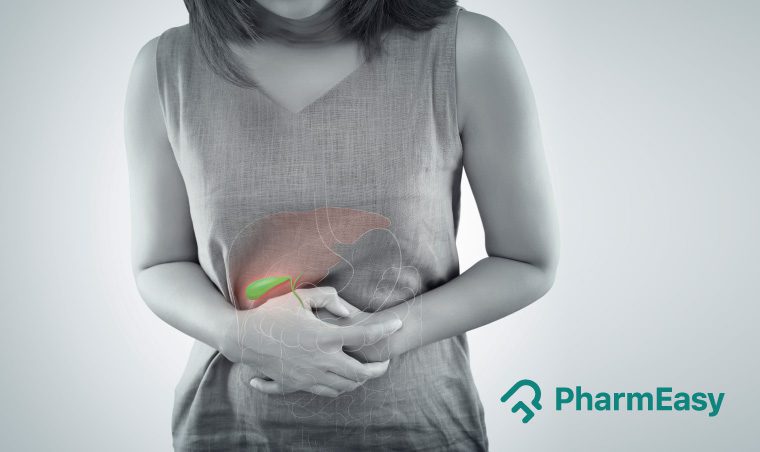
Stones in your gallbladder are of two types – cholesterol gallstones and pigment gallstones.
Excess cholesterol in your bile is likely to give you cholesterol gallstone.
If your bile consists of excess bilirubin, you are likely to have pigment gallstones.
The third type, known as mixed gallstone, is a heterogeneous mix of cholesterol, bile pigments and calcium salts. This is also the most common type of gallstone found in a vast majority of incidences.
Chemical imbalance in the gallbladder is considered to be the reason for stones being formed in your gallbladder. These chemicals include cholesterol, calcium bilirubinate and calcium carbonate. There is no established reason yet known as to why some people have this chemical imbalance in their gallbladder to get gallstones and others do not.
There are hardly any specific reasons for the formation of gallstones. Some of the reasons attributed to the formation of stones in the gallbladder include:-
A study corroborates that women are at higher risk of growing gallbladder stones due to pregnancy and sex hormones. Secretion of biliary cholesterol is associated with estrogen, which is a group of hormones which play a vital role in aiding the reproductive development in women and maintaining normal sexual health. This results in supersaturation of bile with cholesterol rendering the bile lithogenic, i.e. prone to the formation of stone. The study further concluded that heaviness or obesity in the abdominal region, lack of physical activity and high intake of foods rich in saturated fats were the most common factors in the cases forming part of the cited study on “Lifestyle and Gallstone Disease”.
The traditional risk factors for gallstone disease are the four “F’s: female, fat, forty, and fertile,” with many studies supporting the known risk factors for gallstone disease.
Dr. M.G. Kartheeka, MBBS, MD
In the majority of cases, there are hardly any symptoms of growth of stones in your gallbladder. They may be merrily swimming around in the stored bile, causing you no harm or pain or discomfort, not giving any inkling of their existence. In this condition, stones in the gallbladder continue to remain unknown unless revealed through an ultrasonography examination.
Here are some of the symptoms and complications that may indicate the presence of gallbladder stones:
When gallstone(s) block a biliary duct you start feeling the pain. About 10 – 22% of just the female population in India are estimated to have gallstone disease.
Here are some complications which may arise if gallbladder stones are left untreated:
Because all gallstones might not need surgery, there is no guidance on how big a stone should be to get operated on, complications and the patient’s health conditions are determining factors.
Dr. Ashish Bajaj, M.B.B.S. M.D. in Clinical Pharmacology and Toxicology
If you notice the above-mentioned symptoms or if the symptoms seem to be getting worse, those floating stones may need to be checked by a doctor. Consult a doctor right away.
There is no basis established yet that home remedies are an effective treatment for stones in your gallbladder. They are, however, known to provide some symptomatic relief and may help maintain the status quo. We will cover some exclusively home remedies and some natural remedies that too may be tried at home to maintain good digestive health and gallbladder.
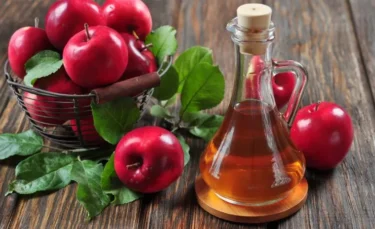
Some suggest a mixture of apple juice and apple cider vinegar as a cleanser. Apple cider vinegar is known to have some health benefits, but its efficacy in gallstone is not medically established. Consumption of large amounts of apple juice is not advisable for those with diabetes, hypoglycemia (low blood sugar) and stomach ulcer.
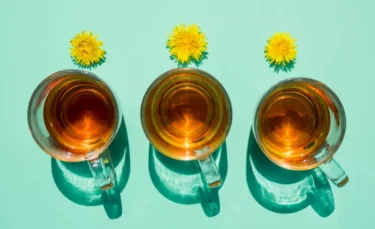
This flower (known better as Dalia or Singhparni in India) has been traditionally known as an effective home remedy for problems of the gallbladder, liver and bile ducts. Its bitter roots are known to stimulate the production of bile for storing in the gallbladder. Dandelion tea or coffee is available in stores and is often consumed for gallstones.
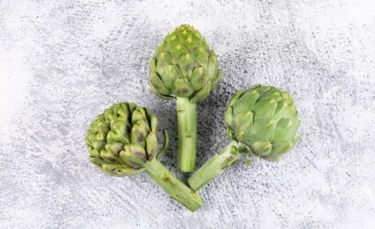
Extract of this drumstick is known to assist the production of bile and aid the functioning of both the liver and the gallbladder. You may have it cooked in various ways to your taste or buy it as a supplement which apparently works better.
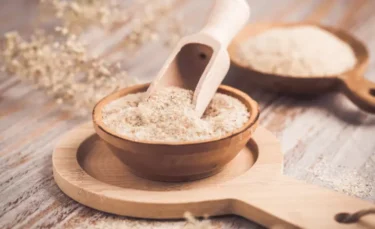
Psyllium husk or isabgol is a popular remedy used for regularising bowel movements in India. It has been known to inhibit the formation of cholesterol gallstones.
Preventive actions are one of the best remedies that you may try to keep yourself away from incurring gallstones.
Every person is different, so these may/or may not suit you. Talk to your doctor before trying anything new.
Home remedies do not have any proven effect in the prevention or reduction of gallbladder stones. Not every reason for the formation of gallstones is known; hence, one may get gallbladder stones even without any known risk factors or underlying problems. Early diagnosis and timely treatment by a doctor are recommended.
Applying a towel, wetting well with warm water or applying a heating pad or hot water bottle to the pain-affected area may help reduce your gallbladder pain. In case of severe pain, a doctor will prescribe you medicines for pain relief.
Left untreated, you run the risk of your gallstone causing a block in your bile duct. Thereafter this block may gradually lead to inflammation and infection in your bile duct, cholecystitis and even cause pancreatitis. Untreated gallstones run the risk of jaundice and cancer of your gallbladder.
Avoid fatty foods when diagnosed with gallstones. Some examples of such fatty foods are:-
> Fried chicken, french fries, chips of potato or banana, chanachur/dalmut.
> Full fat Milk, butter, cheese, cream, ice cream.
> Fat meats like pork, mutton and beef.
> Bacon, ham, sausage and any other processed meat.
> Alcohol
> Cheese sauces, mayonnaise, salad dressings and dips with cream content.
Disclaimer: The information provided here is for educational/awareness purposes only and is not intended to be a substitute for medical treatment by a healthcare professional and should not be relied upon to diagnose or treat any medical condition. The reader should consult a registered medical practitioner to determine the appropriateness of the information and before consuming any medication. PharmEasy does not provide any guarantee or warranty (express or implied) regarding the accuracy, adequacy, completeness, legality, reliability or usefulness of the information; and disclaims any liability arising thereof.
Links and product recommendations in the information provided here are advertisements of third-party products available on the website. PharmEasy does not make any representation on the accuracy or suitability of such products/services. Advertisements do not influence the editorial decisions or content. The information in this blog is subject to change without notice. The authors and administrators reserve the right to modify, add, or remove content without notification. It is your responsibility to review this disclaimer regularly for any changes.

Leave your comment...

View all comments(1)
पित की नली में पथरी होने से पित पूरे शरीर में फैल गया और खुजली हो रही है क्या करे की खुजली समाप्त हो जाए